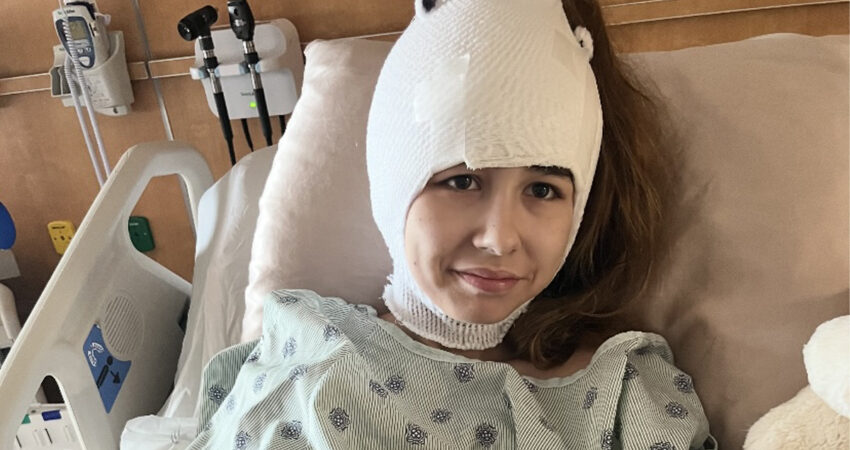
After medications stopped working, 14-year-old Madi underwent brain surgery to help eliminate her seizures.
By Maureen Gilmer, Riley Children’s Health senior writer, mgilmer1@iuhealth.org
For 12 years, Madilen Vanderwoude has lived with epilepsy. But surgery at Riley Hospital for Children in April has given her the chance to experience what it means to live mostly seizure-free.
The result is a happier, healthier child, says her mom, Marissa Basile.
Madilen, “Madi” for short, was diagnosed with the neurological disorder at Riley as a toddler. Now 14, she’s been on several anti-seizure medications over the years, but when the episodes became more frequent, her Riley team (including epileptologist Dr. Robert Blake and neurosurgeon Dr. Thomas Larrew) agreed that more testing was warranted.
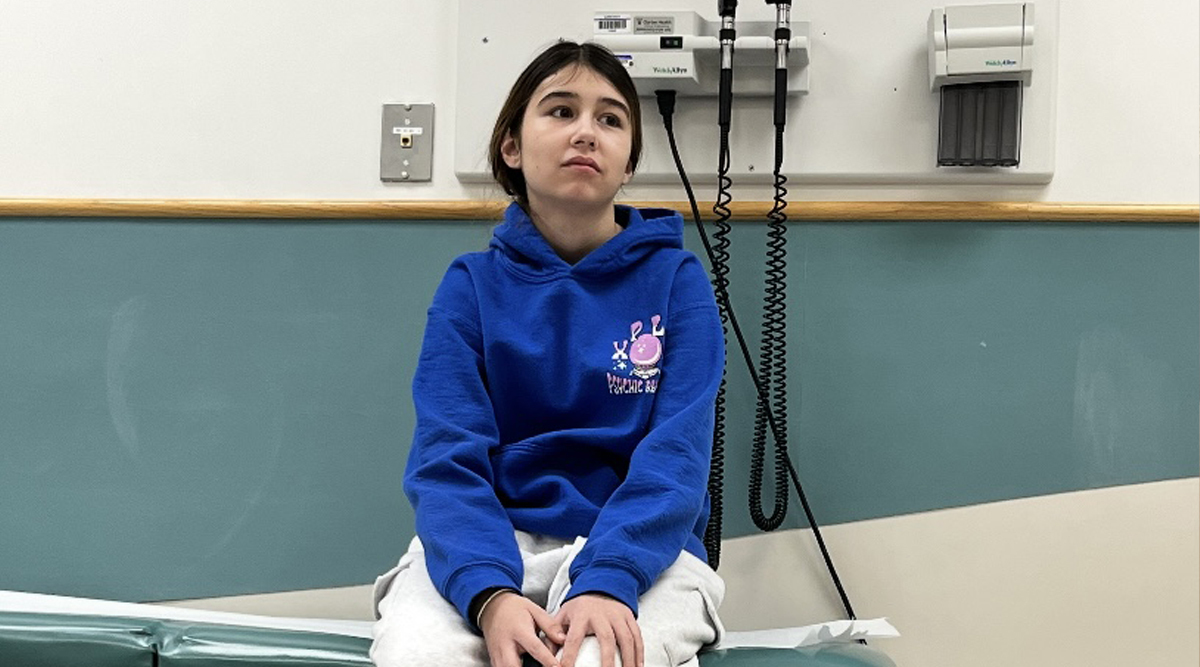
When a patient has intractable epilepsy – suffering seizures that cannot be controlled with anti-seizure medications – they are evaluated in Riley’s comprehensive epilepsy program to determine if they might benefit from surgery.
In Madi’s case, a procedure called stereo-electroencephalography, or SEEG, was done. It involves placing thin electrodes into the brain allowing for precise monitoring of brain activity during seizures. This not only pinpoints the location of seizure activity but identifies episodes that might not present in a typical way, particularly overnight.
“That was eye-opening,” Basile said of the February procedure. “She was having a lot more seizures than we were aware of, a lot of them in her sleep, and she wasn’t waking up. As her parent, I was devastated because I felt like I should have known.”
It is hard to know the full extent of what seizures are doing to kids, Dr. Larrew said.
“Even if they’re not having full-on seizures, it can be disrupting to thinking and sleep.”
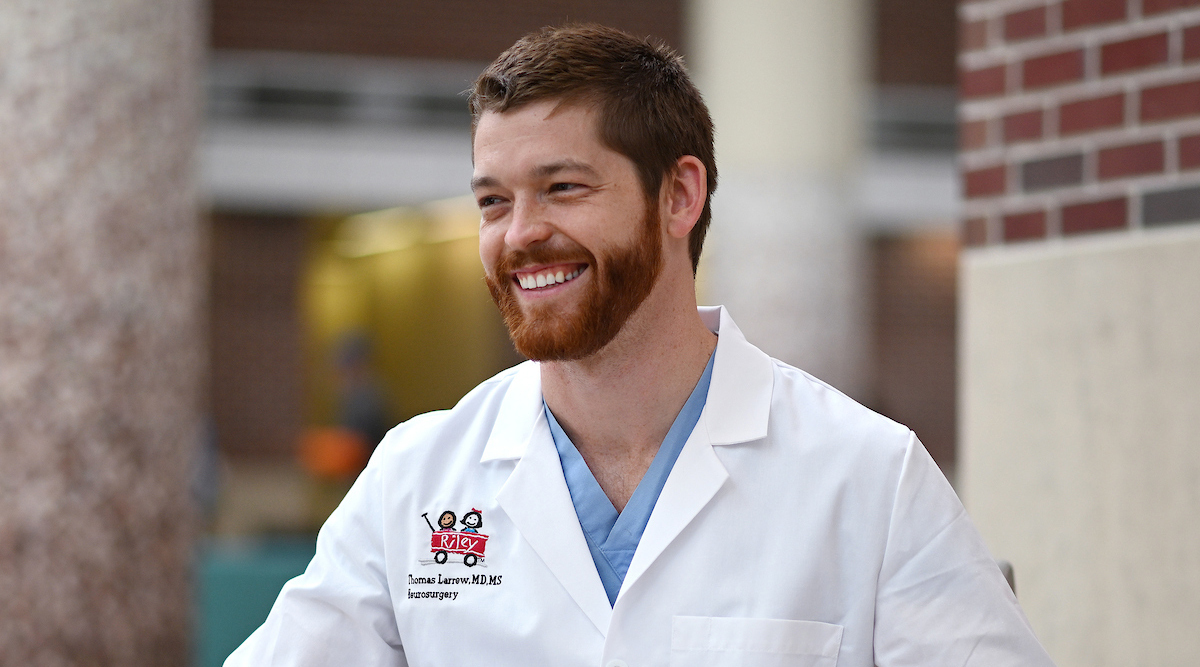
The Riley medical team presented two options to the family – a surgical resection, meaning a portion of brain tissue where the seizures were originating would be removed, or a less-invasive procedure called RNS (responsive neurostimulation), which implants a device to detect and respond to abnormal electrical activity in the brain, similar to a heart pacemaker.
Madi’s seizures were focused in her occipital lobe, located in the back of the brain and responsible for processing visual information, including color, form and motion.
“Because we were able to localize it, that made her a candidate for resection surgery to really fix the seizures,” Dr. Larrew said.
“The idea behind the surgery is we can potentially cure them of their seizures,” he added. “If we compare that to medicine, once you fail two or more medications and you’re still having seizures, the likelihood of you getting medication changes to control seizures is pretty small, under 5%.”
Still, it’s not an easy decision to make because there is a risk for vision loss, though there are adaptations that can be made with special glasses, therapy, etc.
What helped was being connected with a family across the country who had experienced something similar and sought treatment at Riley.
“We were lucky enough to be put in contact with a family in California that had brought their child to Riley to have the resection surgery,” Basile said. “It was awesome because I had so many questions. We were able to see what it looked like for them, and we went for it.”
Not that it wasn’t scary. Brain surgery on your child? That’s hard to wrap your mind around.
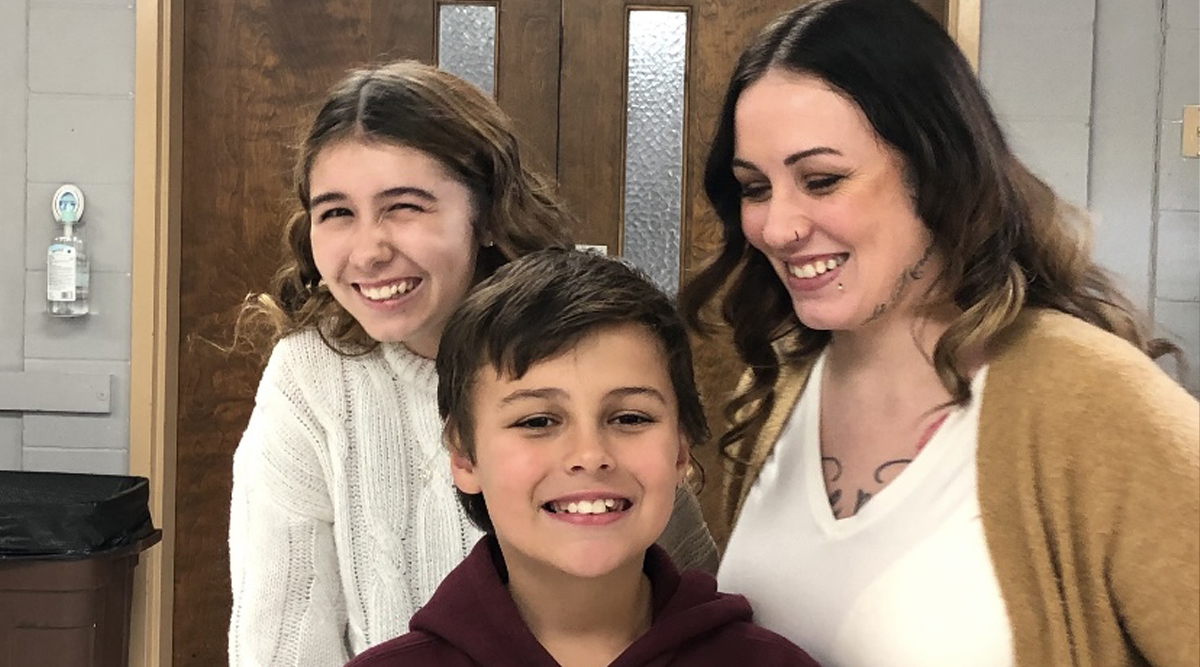
“I was absolutely terrified,” said Basile, also the mother of two boys. The family lives in Cedar Lake, in northern Indiana.
Her daughter, however, was ready to be done with it. So together, amid consultation with doctors, they moved forward with the surgery to remove a small section of Madi’s occipital lobe in April.
“When we had our first appointment before surgery with Dr. Larrew and Dr. Blake and the whole team, I was shown a power point of my child and her history,” Basile said. “They really did their homework, and I could not have felt more comfortable and safe trusting them with the care of my child.”
The first few days post-surgery were a little rough, she said, but since then, Madi has had only one day where she had any episode, quite a contrast from the multiple seizures she had suffered weekly.
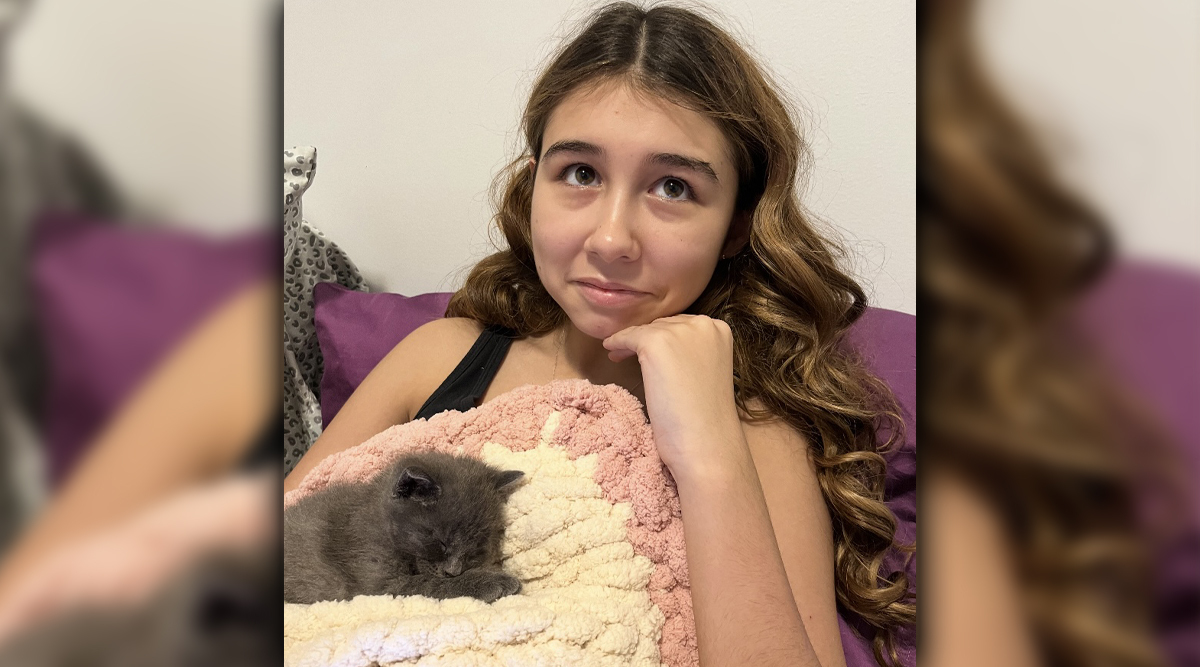
“She just looks brighter,” her mom said. “She wakes up better, not so draggy. It’s night and day. The episodes really drained her of all energy.”
Stephanie Lange, nurse navigator for the Riley Epilepsy Program, can attest to that as well. She first met Madi when the teen and her mom came in for testing before any decision was made about surgery. Then she saw her again two weeks post-surgery.
“She just radiated,” Lange said. “You don’t realize how bad someone feels until you see them post-operatively. She was just glowing. I thought, ‘Wow, is this the same Madi?’ It was awesome to see.”
During her recovery time at Riley, Madi connected with child life specialist Maddie Rodriguez on the ninth floor, who played board games with her, talked about the teen’s love of makeup and shared that they both love to sleep and to eat.
“It was such a relief to see her perk up,” Basile said. “There’s just a level of care there that I have never experienced anywhere else.”
While Madi has lost some of her peripheral vision on her left side, she is learning to adapt, and she is most excited about starting high school in the fall, Basile said.
“She doesn’t have that weight of worrying if she’ll have an episode. It’s refreshing to see.”
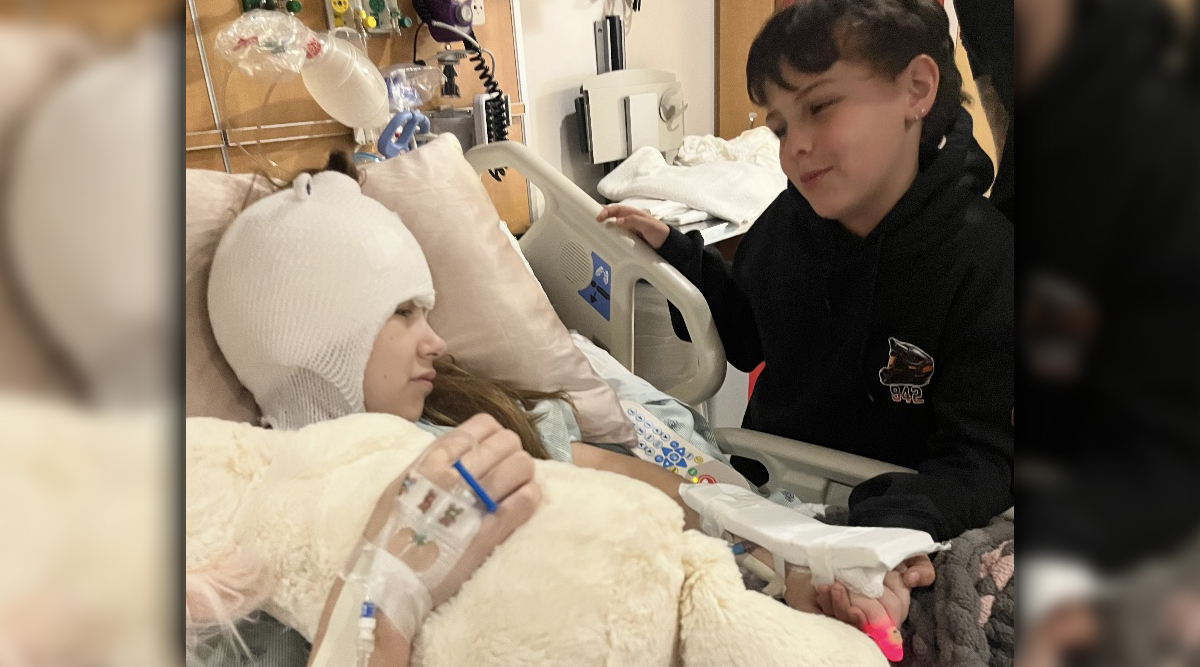
Madi never really had convulsive seizures, her mom said, referring to her daughter’s episodes as “absence seizures.”
“She would kind of shut down, but her eyes were open. She’s always been able to tell me since she was little when they were coming on. She sees sparkles,” Basile said. “Her eyes could tell me everything I need to know. She’s there, but she’s not there.”
Dr. Larrew, who saw Madi two weeks after surgery and will see her again next month, said he is pleased with her progress.
“We feel good about how things have been going so far,” he said, adding that the next goal is to wean her off the medications over the next several months.
Epilepsy is a tough, lifelong condition, the neurosurgeon added, but Riley has one of the largest pediatric epilepsy surgery programs in the nation.
“We’re doing everything you can do and pushing the boundaries in terms of looking at new options and new modalities to do all we can to help kids with epilepsy,” he said. “It’s really awesome to be able to help kids and, if not cure them of epilepsy, significantly reduce the seizure burden so they can have a better quality of life.”
So far, Madi and her mom are pleased with the results of surgery, and Madi herself wanted to share her story to help others.
“She was really happy to have this opportunity to help,” Basile said, just like the family in California helped them. “She’s such a lovely kid, especially with the hand she was dealt. I’m just so glad she was able to get this amazing care.”
Riley Children's Health is the only Level 4 Comprehensive Epilepsy Program in Indiana, as designated by the National Association of Epilepsy Centers (NAEC). Level 4 programs have advanced technology, clinical experts and enhanced imaging techniques.






